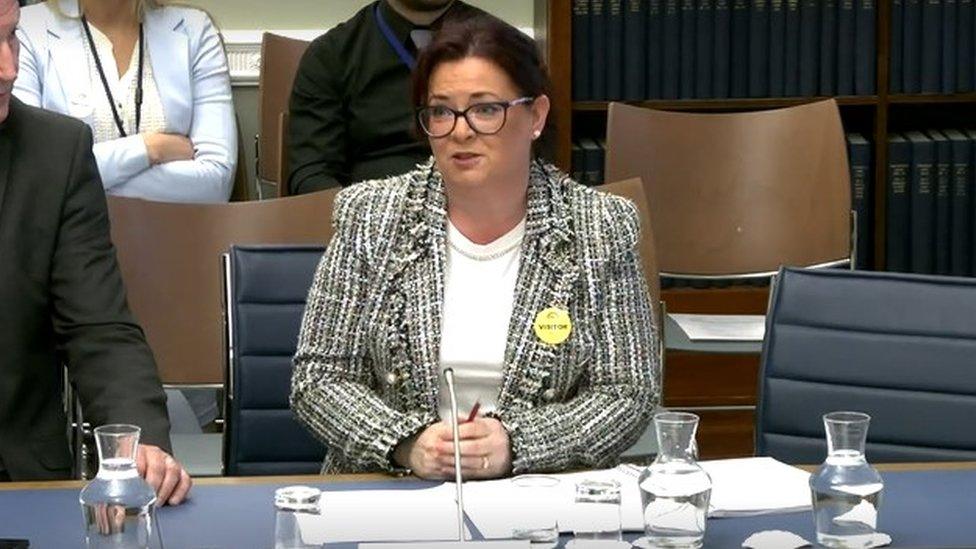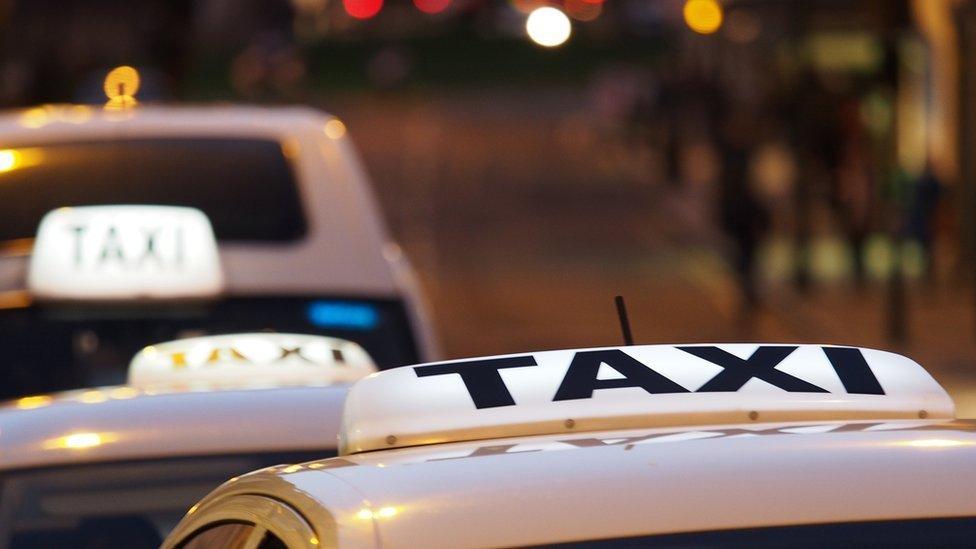Taxis: NI firms concerned about new licencing proposals
- Published
- comments

Stephen Anton from Fonacab said the number of active drivers in NI should be about 50% higher
Taxi operators have warned proposed licensing changes in Northern Ireland could have a "devastating" impact on the industry.
It comes after a Department for Infrastructure proposal to change taxi operators' licensing regulations.
This follows court cases in England and Wales.
One of the implications of the proposals could be a 20% increase on average fare prices.
Stephen Anton from Fonacab, representing the Licensed Taxi Operators' Association, told a Stormont committee there was a lack of understanding of the implications the proposals could have locally, which would mean higher prices and potential closures.
"If implemented, this could increase taxi fares by 20% and prevent those who are most in need from accessing taxi services," he said.
"This also has the potential to close many operators down permanently."
The committee heard that in 2014 there were 16,000 taxi licences, by 2021 that number had fallen to 8,500 and by December 2023 it was down to 7,500.
Problem for smaller operators
Mr Anton said that was the number of licences rather than the number of active drivers, which in January was estimated at about 5,000 drivers - a figure he said should be about 50% higher.
He said the proposed legal changes would result in taxi operators or drivers who have total annual fares of £90,000 or above having to charge VAT on all bookings.
"To put that into context, a taxi operator who has as little as two drivers, each lifting fares of say £900 per week - that's your £90,000 turnover, that's your threshold for VAT already met," he said.
"So any taxi operator with two drivers or above will automatically be pulled into this and that's the majority of operators in Northern Ireland.
"Scrutiny is not a bad thing and everyone has to pay their way, but the problem is many of the small operators do not have the administration capability to be to handle the returns that we're talking about here.
"So as well as putting the price up, it has the potential to put a lot of these smaller operators off the road."

Cathy Mallie from Clanrye Taxis in Newry spoke at the committee meeting
His concerns were echoed by Cathy Mallie from Clanrye Taxis in Newry, who told the committee people in rural areas struggled to get taxis.
"We have lost 50% of our drivers since Covid-19 and we have never recovered from that," she said.
She added she found it difficult to keep drivers in the industry - with all of them over the age of 60, including her father who is 75 - and she warned further changes would be "devastating".
"If this VAT element comes in, that will definitely call it a day," she told the committee.
"We financially couldn't afford to support the administration and the back offices, we wouldn't have the finances and we're really struggling and in dire straits at the minute, especially in Newry."
"It's not the tourist side of things that we worry about, it's the local people and local runs.
"It's the woman who is going to get her pension, somebody going to the hospital for an appointment or the woman who wants you to take her 4 year old to school because she has a disabled child at home, it's the trust they place in us."
A spokesperson for Stormont's Department for Infrastructure said: "Officials are currently assessing what legislative changes may be needed to reflect and align with the recent court rulings and the minister will make a decision on this issue in due course."
- Published9 June 2021
